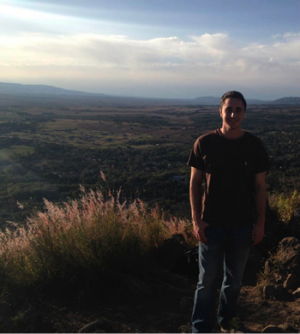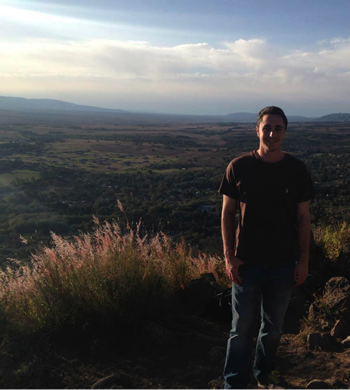Doug Mulford traveled to Argentina from May 5 to July 7, 2014. In his story, The Truth About Study Abroad, he shares the realizations he made about himself and the experience of studying abroad.
As a Spanish major, I’ve had plenty of classroom experience focusing on international relations, language barriers, and culture shock, to name some of the various dilemmas our own internationals experience here. I’m also involved in ASU’s organization International Appalachian, and have spent 3 years interacting with the internationals that arrive here at ASU. However, previous to my semester abroad most of my own international experience was limited to what I learned in class. These experiences were essentially all theoretical, as I hadn’t personally gone through the ups and downs of life abroad. I think many students have a false assumption that going abroad is a perfect experience, as I did myself. However, my semester in Argentina changed my life, and it was one of the most amazing experiences. But, I want people to understand the truth of studying abroad, not just the glorified and in many instances falsified assumption of studying abroad.
The largest hurdle in my study abroad experience was breaking the language barrier. I thought I had a pretty good handle on Spanish before I left, and maybe my abilities were more advanced than many other internationals. But, the moment I got off the plane in Mendoza and met my host family, I swore the language they were speaking was anything but Spanish. This truly was a blow to my ego, and I felt, to be frank, foolish that after years of study I could make out just a very basic idea of what these people were saying. However, the human brain and ears are amazing, and after a month I adjusted linguistically and was swimming in the beautiful Spanish language, picking up the colloquial phrases, and slowly starting to sound like a true Argentine.

The second hurdle was adjusting to local customs. I have always lived in a very structured, hard-working, and on-time environment. Not to say the Argentine people aren’t hardworking-it’s just they work differently than we do. The buses were never on time, if someone told you to meet for lunch at 1 they would arrive at 2:30, and the minimum 3 hour siestas where the whole city basically stopped made it difficult to do things like grocery shopping, finish paperwork for my visa, etc. I will admit the siesta wasn’t too difficult to adjust to, but I really never felt comfortable with the Argentine idea of “time”. Even though it is perfectly fine in their culture to be late, I never accepted that aspect and would continue to arrive on time and be angry when everyone else showed 1-2 hours later. If I had one piece of advice to give to students thinking about studying abroad, it would be to be completely open to the different customs of their home country’s culture.
With all the issues I experienced in Argentina, there were two main positive aspects of their culture that made it completely worthwhile: the people and the food. I swear I could convert any vegetarian just by having them smell an Argentine “asado”. I don’t think I’ve ever eaten better food in my life; the cuts of meat are simply seasoned with salt, and include ribs and steak, blood sausage, vegetables, and of course a local red wine. The food is cooked over wood coals, giving it a smoky flavor while retaining the juicy texture.
Of course, the people were truly what made my semester such a wonderful experience, despite the initial problems. The Argentines are the most humble, hospitable, and caring people I have ever met. I heard a rumor from a few people from other South American countries that I may feel that the Argentines were stuck up or self-absorbed, but what I found couldn’t be further from this unjust claim. The many times I found myself lost in Mendoza, someone was willing to walk with me to my destination. If I needed help with my class, my assigned tutor was always eager to explain the content to me. Yes, Argentina is in a crisis, and maybe their values may seem strange to us, but you won’t find kinder or more warm-hearted people anywhere else in the world.
That is my experience, the truth. There are both positive and negative aspects to studying abroad. These experiences aren’t perfect, so don’t jump in to them with an idea of entering a type of utopia. Wherever you may end up abroad, just know that experiencing another culture will truly change your life for the better.

